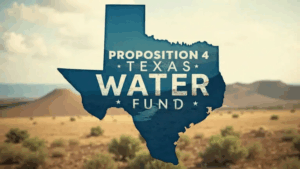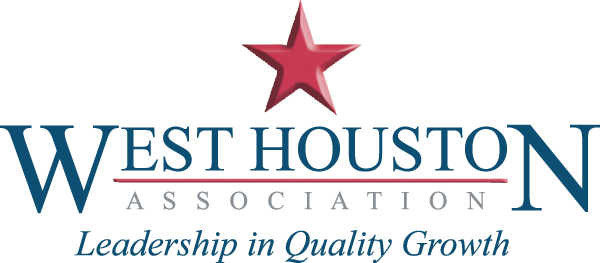 This November, Texans will head to the polls to decide on a number of constitutional amendments, including Proposition 4, which would dedicate a portion of state sales and use tax revenue to the Texas Water Fund. For communities across Greater West Houston, where quality growth and long-term planning are at the center of daily conversations, this proposition represents a meaningful opportunity to strengthen the resilience of our state’s most essential resource: water.
This November, Texans will head to the polls to decide on a number of constitutional amendments, including Proposition 4, which would dedicate a portion of state sales and use tax revenue to the Texas Water Fund. For communities across Greater West Houston, where quality growth and long-term planning are at the center of daily conversations, this proposition represents a meaningful opportunity to strengthen the resilience of our state’s most essential resource: water.
What Proposition 4 Proposes
Proposition 4 asks voters whether the state should allocate the first $1 billion per fiscal year of sales tax revenue (once revenues exceed $46.5 billion annually) into the Texas Water Fund. The amendment would remain in effect until 2047, with a safeguard that prevents lawmakers from changing the allocation for the first ten years. Importantly, the provision allows for flexibility during declared disasters by enabling the legislature to suspend the allocation temporarily.
At its core, the amendment ensures that Texas commits to a reliable stream of funding dedicated specifically to water infrastructure. This fund, created during the 2023 legislative session, is designed to support long-term investments in water supply, treatment, distribution, and conservation—areas that underpin both economic growth and community well-being.
Why Water Infrastructure Matters for West Houston
For the West Houston region, the conversation around water has always been more than a matter of supply; it is about how infrastructure shapes the ability of nearly two million residents to live, work, and thrive. From surface water projects that address subsidence, to innovative reuse systems developed by local municipal utility districts, investments in water have proven critical to sustaining economic success.
Yet demand continues to rise. Population growth in Fort Bend, Waller, and Harris counties places pressure on existing systems, while drought cycles remind us of the fragility of supply. Much of the region also relies on water purchased from the City of Houston, making local planning and resilience efforts deeply intertwined with the capacity and priorities of Houston’s utility operations. At the same time, state agencies and local providers are tasked with balancing regulatory requirements, affordability, and future planning. Without dedicated funding, many worthwhile projects risk delay, leaving communities vulnerable to shortages or costly emergency solutions.
A Statewide Solution with Local Impact
By directing a portion of sales tax revenue into the Texas Water Fund, Proposition 4 provides a proactive answer. It supports not only the big-ticket regional projects that require long planning horizons but also the local initiatives that ensure safe, affordable, and sustainable water access in our neighborhoods.
For the greater West Houston region, that could mean greater support for:
- Expanding and modernizing water treatment facilities that serve fast-growing communities.
- Advancing water reuse initiatives that improve efficiency and reduce reliance on traditional supplies.
- Investing in infrastructure upgrades that ensure compliance with subsidence district mandates and provide resilience against drought.
- Supporting smaller-scale projects that bring safe and reliable water to communities at the edge of growth corridors.
The amendment also reflects a broader recognition that water is a shared resource, and that regional prosperity depends on coordinated action. Just as transportation and flood control benefit from cross-jurisdictional planning, water infrastructure requires the same level of foresight and investment.
Looking Ahead
The conversation around Proposition 4 is ultimately a conversation about priorities. Texas has enjoyed remarkable economic success, fueled in large part by communities like those found in the greater West Houston region that combine opportunity with livability. Sustaining that success means preparing for the challenges that come with growth. Water, like mobility and flood mitigation, is a core element of that preparation. Proposition 4 is an investment in both today’s needs and tomorrow’s opportunities.
